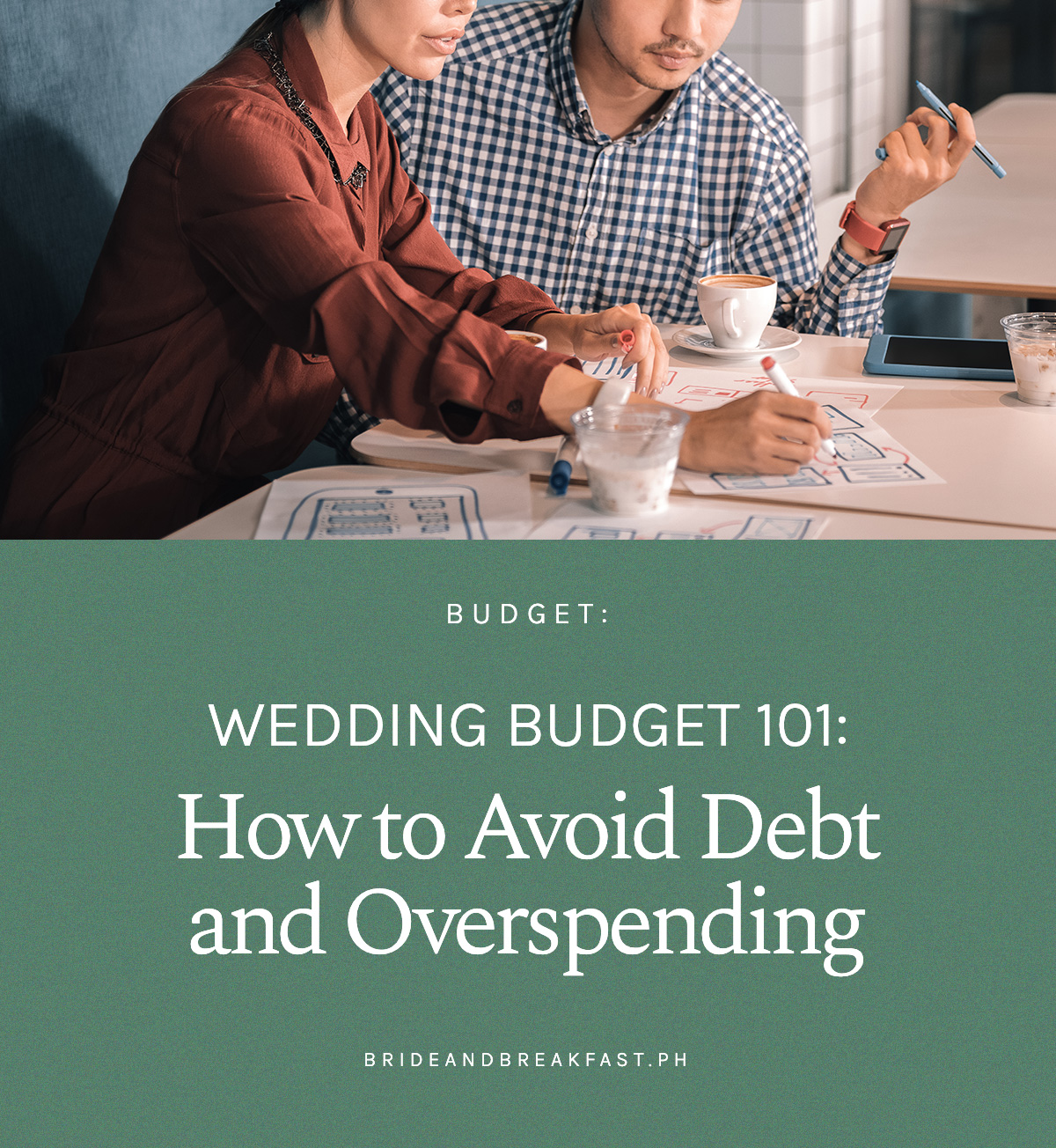Let’s address the elephant in the room–Weddings can get expensive! But what you wouldn’t want to happen is going over your budget or, even worse, getting into debt just to pay for your wedding. We have heard of stories about couples who ended up paying for wedding costs long after the big day was over. So, instead of enjoying newlywed bliss, they had expenses on top of expenses to worry about. Now, we’re not trying to scare you. This problem can be avoided, of course. You can prepare for the wedding that you’ve always dreamed of– whether grand or intimate–without having financial troubles. Here are some tips to consider!


This is an important discussion to have before you officially start planning your wedding and booking suppliers. Most likely, your wedding is your first major project together. Think of it as a glimpse into married life: Lots of decisions, and some compromises will be made. We recommend setting your budget right away. Be honest with each other about your financial circumstances, then figure out how much of your income you’re willing to set aside to cover the wedding costs. A nugget of wisdom we’d like to share is to not spend beyond your means just to impress other people. The bills won’t be worth it! This brings us to our next point:

Once you’ve set your budget, stick to it. Spend only the amount of money that you have on-hand. If you plan on charging some expenses to your credit card, it would be a good idea to pay it off fully the moment your statement of account arrives. Here’s another money tip that might be helpful: Use your credit card simply for the convenience or rewards, but make sure you do have the liquid funds to cover the cost. This way, you won’t be dreading your next billing cycle. If you’re anticipating cash gifts from loved ones, try to reserve these funds for your future needs, like your newlywed home.

Invest in the suppliers that matter to you the most, whether that’s photography and videography, food, fashion, and the like. Be on the same page about which ones you’ll be prioritizing, then adjust your budget allocation for the rest of your suppliers accordingly. Ask yourselves what you’re willing to compromise on. Do you really need to send a full bag of goodies to propose to your entourage or would a handwritten letter be enough? Also, don’t forget to factor in the small expenses, like courier services, because these can add up.

Loved ones, like your parents, will probably contribute to your wedding funds. Ninangs and Ninongs might even be willing to sponsor things such as your attire or wedding rings, while friends would offer their services to make your celebration extra special. It’s absolutely okay to say yes to their generosity. These are gifts coming from the bottom of their hearts after all. You can always express your gratitude afterwards.

In the words of our Editor, “Excel file is the key to a happy marriage.” Much like how you track your personal expenses, have a dedicated file/planner/document for your wedding. This will give you an easier time to check which suppliers have been fully paid or are still pending. Having a system also allows you to carefully track and remember where your money is going and how much you’ve already spent. Another option to track your expenses is by opening a savings account solely for wedding planning purposes. So, you’ll have just one place to deposit and withdraw anything related to wedding costs. Once the wedding is over, you can close this account.
There you have it! These are some of our practical tips to help you budget your wedding and make sure your hard-earned money will be in the right place. Do you have other wedding budget hacks to share? Help your fellow brides and grooms out in the comments.









